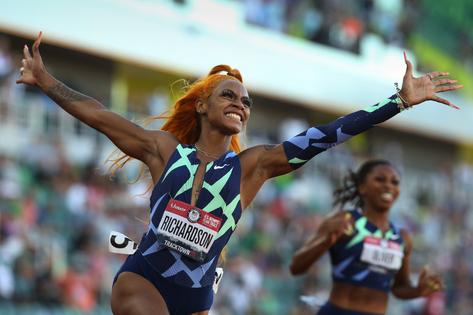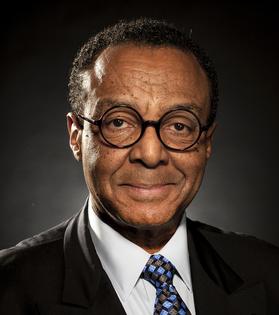Pot, Politics, Protests — Yes, It Must Be Time Again for the Olympics
Hey, sports fans, it’s time for the Olympics again. So let’s talk about pot, protests and politics.
Purists still decry the intrusion of politics into their sacred Games, especially if the politics disagree with their own. But such intrusions have been happening so often, that the International Olympic Committee might as well consider awarding medals for it.
If so, American star sprinter Sha’Carri Richardson became a contender when she received a one-month suspension after testing positive for marijuana.
That came as a shock to many, especially to those of us who didn’t know that even now, after 18 states have legalized recreational weed — including Oregon, where she was when she used it — that you can still get bounced from the Olympics for it, even though officials agree it is not a “performance-enhancing drug,” except perhaps as a stress reliever.
Richardson’s case sounded even more sympathetic after she explained that while she was in Oregon for the Olympic trials, she learned from a reporter that her mother had died.
Enter politics. Rep. Alexandria Ocasio-Cortez of New York joined forces with Rep. Jamie Raskin from Maryland to call on the U.S. Anti-Doping Agency to reverse its suspension. Lacking any scientific basis, AOC said in a tweet, “The rule is rooted solely in the systemic racism that’s long driven anti-marijuana laws.”
History shows a strong case for that, and you don’t have to be a critical race theorist to believe it.
But the unfortunate intersection of racial politics with this year’s Olympics doesn’t end there.
During the medal ceremony for the Olympic trials in Oregon, Gwen Berry, third-place finisher in the hammer throw, turned away from the flag and she indignantly held up a T-shirt reading “Activist Athlete” and draped it over her head.
She made a similar protest statement and lost some of her sponsorships after raising her fist in protest on the podium at the 2019 Pan American Games in Peru. Her purpose, in the fashion of former NFL quarterback Colin Kaepernick’s taking a knee during the anthem, was to protest social injustice in America. That’s a worthy cause but hardly a breakthrough after more than a year of racial reckoning following George Floyd’s death.
I’m old enough to remember the historic impact of Black medalists Tommie Smith and John Carlos’ solemnly raising their fists in a Black-power salute at the 1968 Olympics. But executed excessively, aimless repetition can cross the thin line between effective protest and grandstanding annoyance.
A bigger landmark, particularly to some Black women I know, is the fuss over the Soul Cap, a British-based brand of swimming caps designed to protect natural Black hair, which tends to be more voluminous than that of white people.
The International Swimming Federation (FINA) says it is “reviewing” its decision not to allow the caps in Tokyo, citing a peculiar rule that says the caps must “follow the natural form of the head.” I don’t think the rule-makers had natural Black hairstyles in mind.
After numerous complaints, the federation says it respects “the importance of inclusivity and representation.” That’s a relief. Had there been more inclusivity and representation in the past, officials wouldn’t be caught in such embarrassing situations. But better late than never.
Politics and sports don’t mix, it is often said, but probably not as much as it used to be. We should be accustomed by now to how often the Olympics have served, however uncomfortably, as a world-class stage for political messages.
The most notorious example undoubtedly was Adolf Hitler’s 1936 Games in Berlin, where African American runners including Jesse Owens and Chicago’s Ralph Metcalfe brought home the gold, deflating Hitler’s claims of Aryan supremacy.
But also notorious was the awful 1972 massacre by Palestinian terrorists in Munich that left dead 11 Israelis and one German. We remember that atrocity as an example of quite the opposite message to the themes of international peace and friendly competition that Olympics organizers aim to glorify.
In that sense the Games are more than games. The Olympics represent the world, not just for who we are as much as what we, as people of goodwill, aim to be.
Pot, politics, protests and cultural differences can be bumps in the world these days, but that’s hardly new. In an ever-changing world, it’s not always easy to keep up with ... the changes and work out our differences. But it’s worth the effort — a gold medal effort.
========
(E-mail Clarence Page at cpage@chicagotribune.com.)
©2021 Clarence Page. Distributed by Tribune Content Agency, LLC.
(c) 2021 CLARENCE PAGE DISTRIBUTED BY TRIBUNE MEDIA SERVICES, INC.










